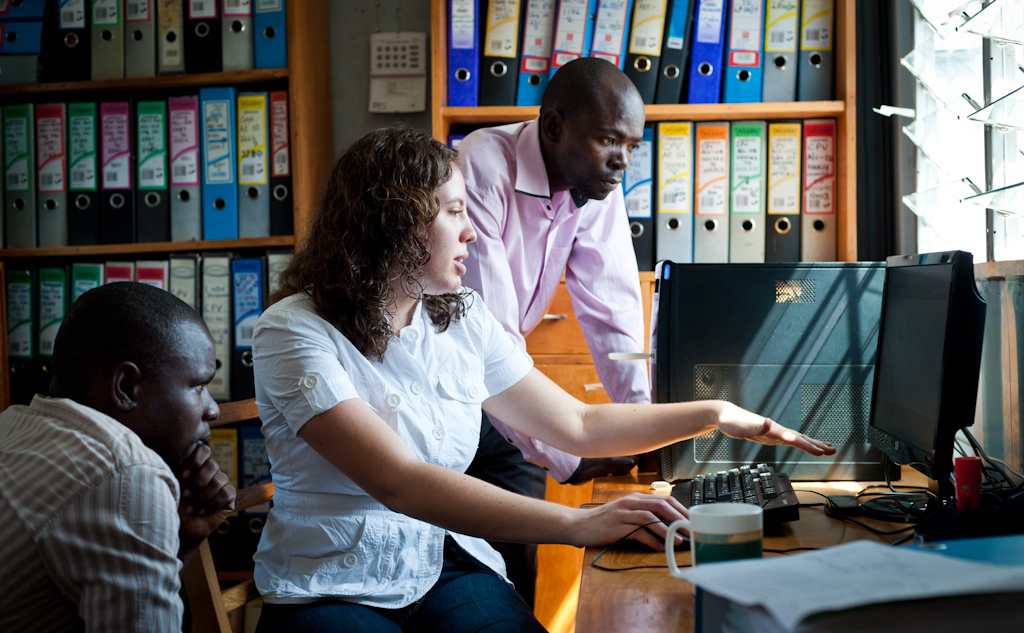By Kavita Rajah and Laura Walker Hudson FrontlineSMS software is used in such a wide variety of sectors that often people are surprised to hear that the inspiration for FrontlineSMS originally came specifically from conservation work. Throughout 2003 and 2004, FrontlineSMS Founder Ken Banks was working to find ways to help authorities engage and communicate with communities in wildlife conservation in South Africa, without relying on the Internet. Ken realised he needed a system that could send, receive, and organize text messages through a mobile device and a laptop without needing the Internet, and from that the original concept of FrontlineSMS was born. The software was developed in the summer of 2005 and made available online that October.
Six years on, despite the very context-specific inspiration for the software, FrontlineSMS has now been downloaded nearly 27,000 times and is in use in over 80 countries, in 22 different areas of social change work. Until the recent release of FrontlineSMS Version 2, users were asked to fill in a form telling us who they were and how they were planning to use FrontlineSMS before being given a download link. Following up on this data gives us the links with users that lead to our case studies and FrontlineSMS in Action blog posts. We recently analyzed the whole dataset to learn more about how, why and where people seek to use our software. What we were able to glean from it was interesting. Among other fun facts:
- The top 3 sectors in which FrontlineSMS is being used most are Education, Health and Civil Society
- The country that has downloaded FrontlineSMS the most is the United States, followed by Kenya and then, India - we think that a lot of downloads from North America and Europe are intended for use elsewhere
- Africa accounts for 35% of all downloads - more than any other continent. 25% of downloads are from Asia, and 17% from North America.
Interestingly, some geographic regions have large numbers of downloads in certain sectors. For example, West Africa has the highest number of downloads in Election Monitoring and Engineering, while Europe has the highest number in Arts and Culture. Asia has the highest number of downloads in the Media sector.
However, the limitations of this dataset got us thinking about how we gather information on our users.
Gathering data about how FrontlineSMS is used is critical for us on a number of fronts - it helps us to improve the software, enables us to report to our donors and the public about the impact of our work, and helps inspire others to use SMS in their work in new and more powerful ways. Although the download data was useful, it could only give us a snapshot of a user's intention at the time they downloaded FrontlineSMS - it was difficult to link this with data about actual use, from the statistics-gathering module in version 1.6 or later, or from our annual user survey, and many users didn't go on to use FrontlineSMS as they'd intended. The most informative element of the form was a freetext section which allowed users to give us potentially quite a bit of information about our plans - but is hard to parse and analyze and often included hardly any data. The only way for users to download anonymously was to give false or junk information on the form.
When we came to plan the release of the new software, we thought very differently. Version 2 of the software is a one-click download that asks users to register when they install. Information collected in this way is sent back to us over the web, when the system sees the internet - we'll be adding support for registration via SMS later. We are committed to allowing users to maintain their anonymity, as we know many are activists (if you are one of these people, you should read our Data Integrity Guide!). You will always be able to opt-out of in-app registration - although it means we get fewer registration records, we know we can trust the data we get. In future, we'll also be building better ways for users to keep in touch with us and each other, and share information about what they're doing with FrontlineSMS, using the website.
We'll keep analyzing the data and posting updates here - in the meantime you can read the analysis of our 2010 and 2011 user surveys here.

